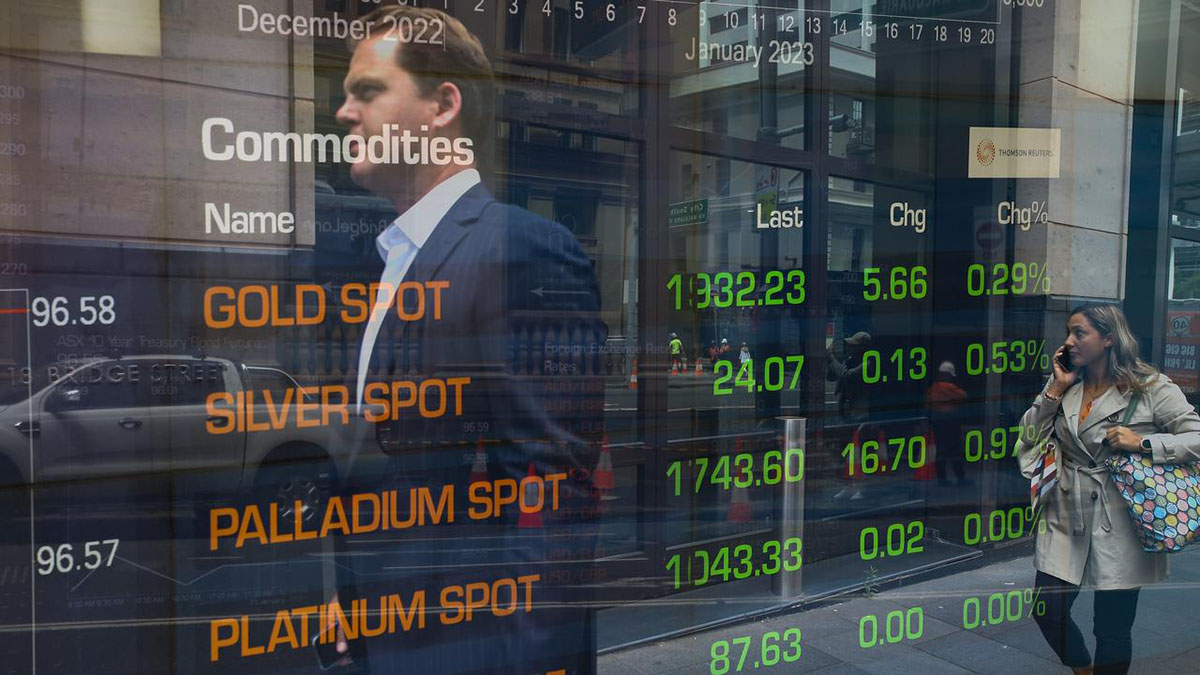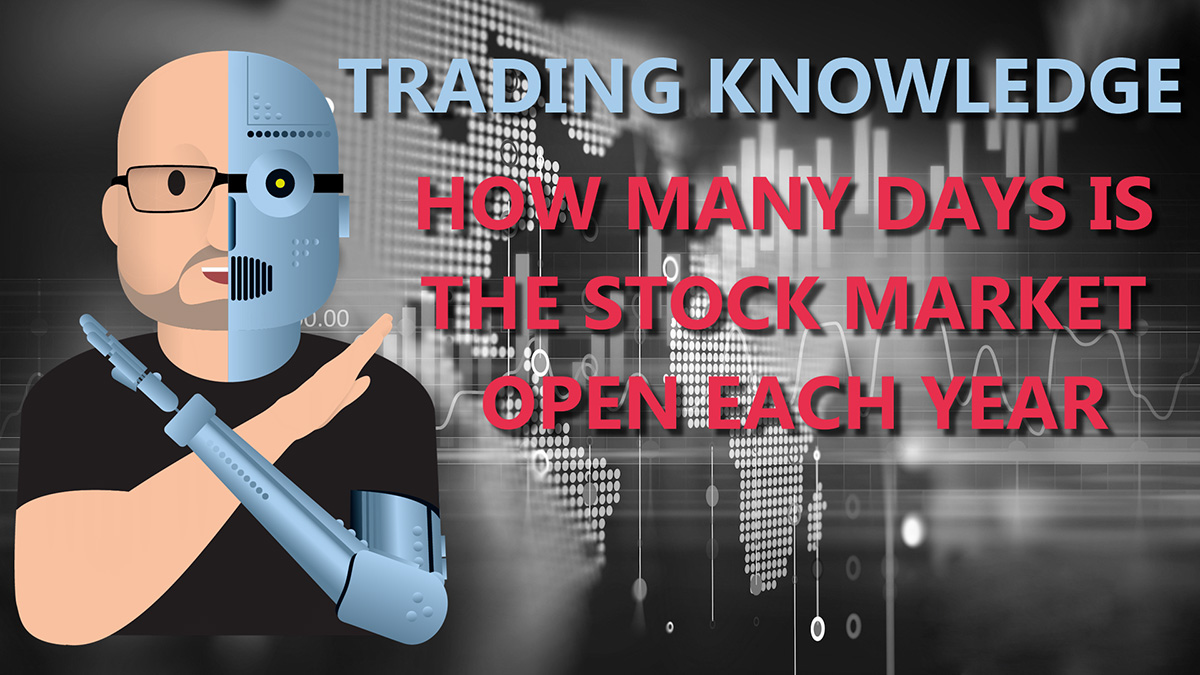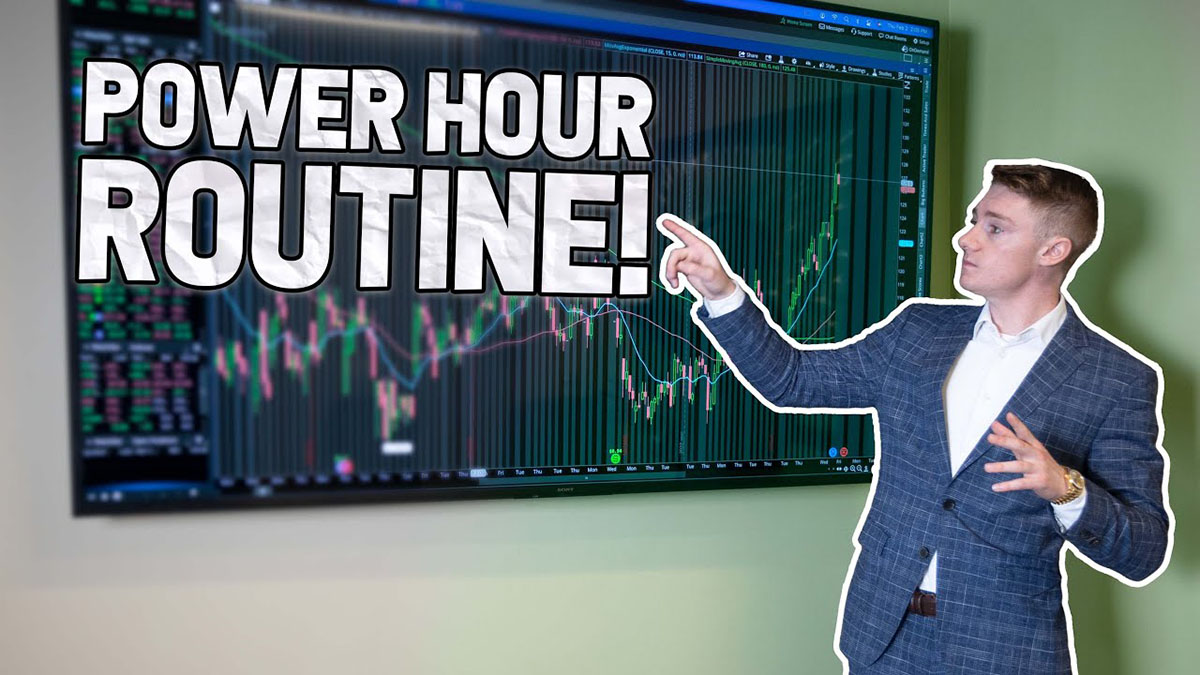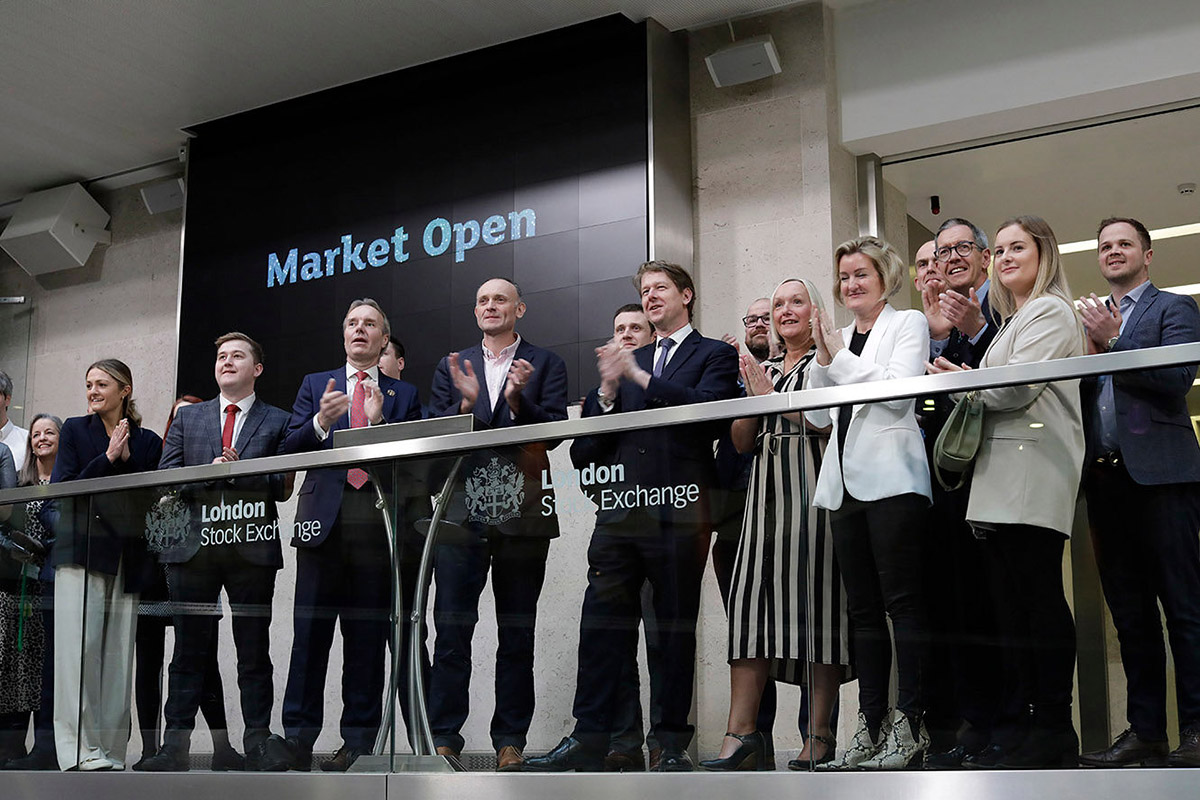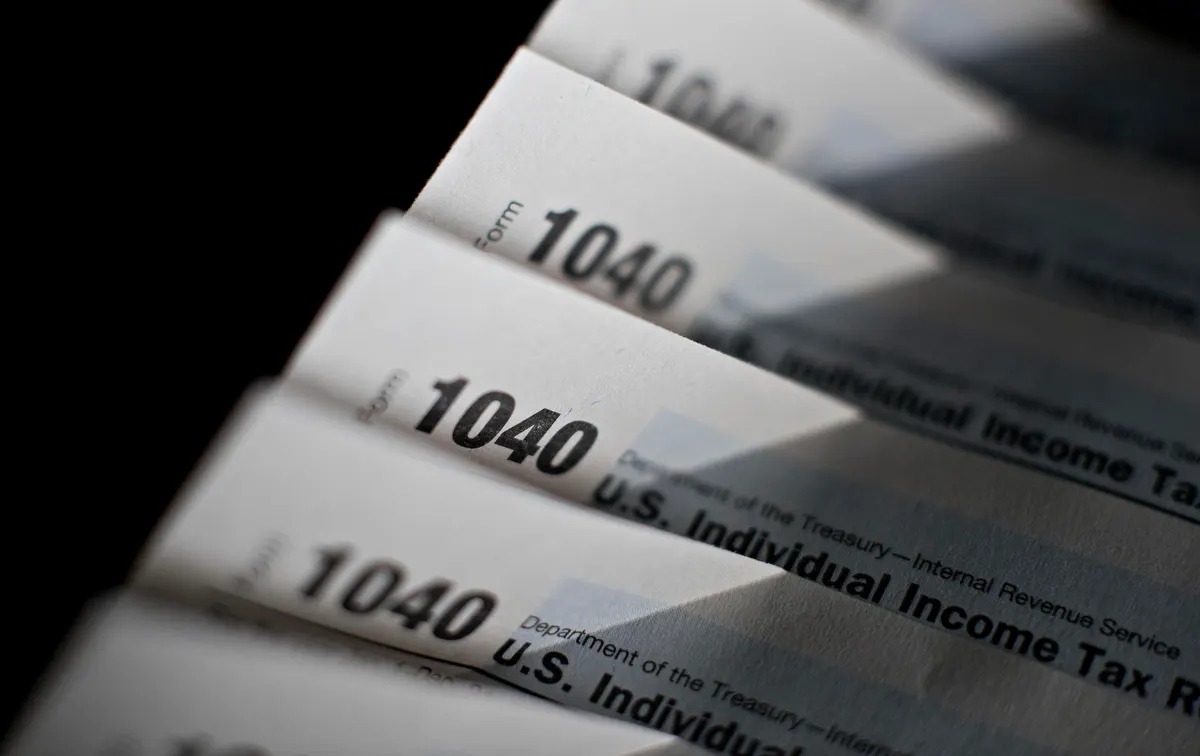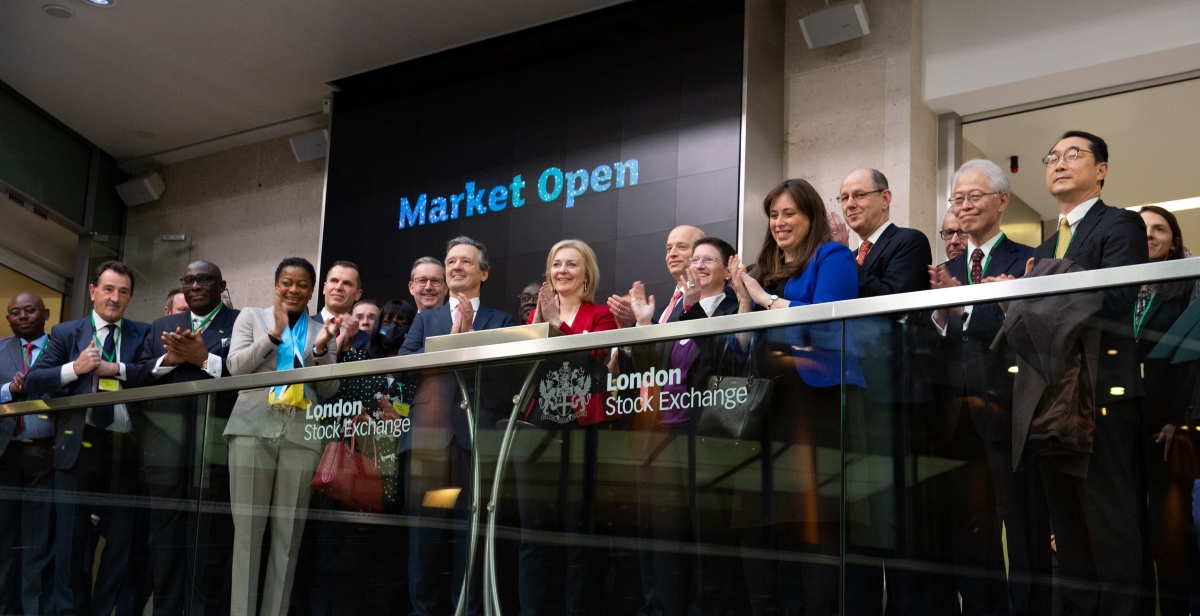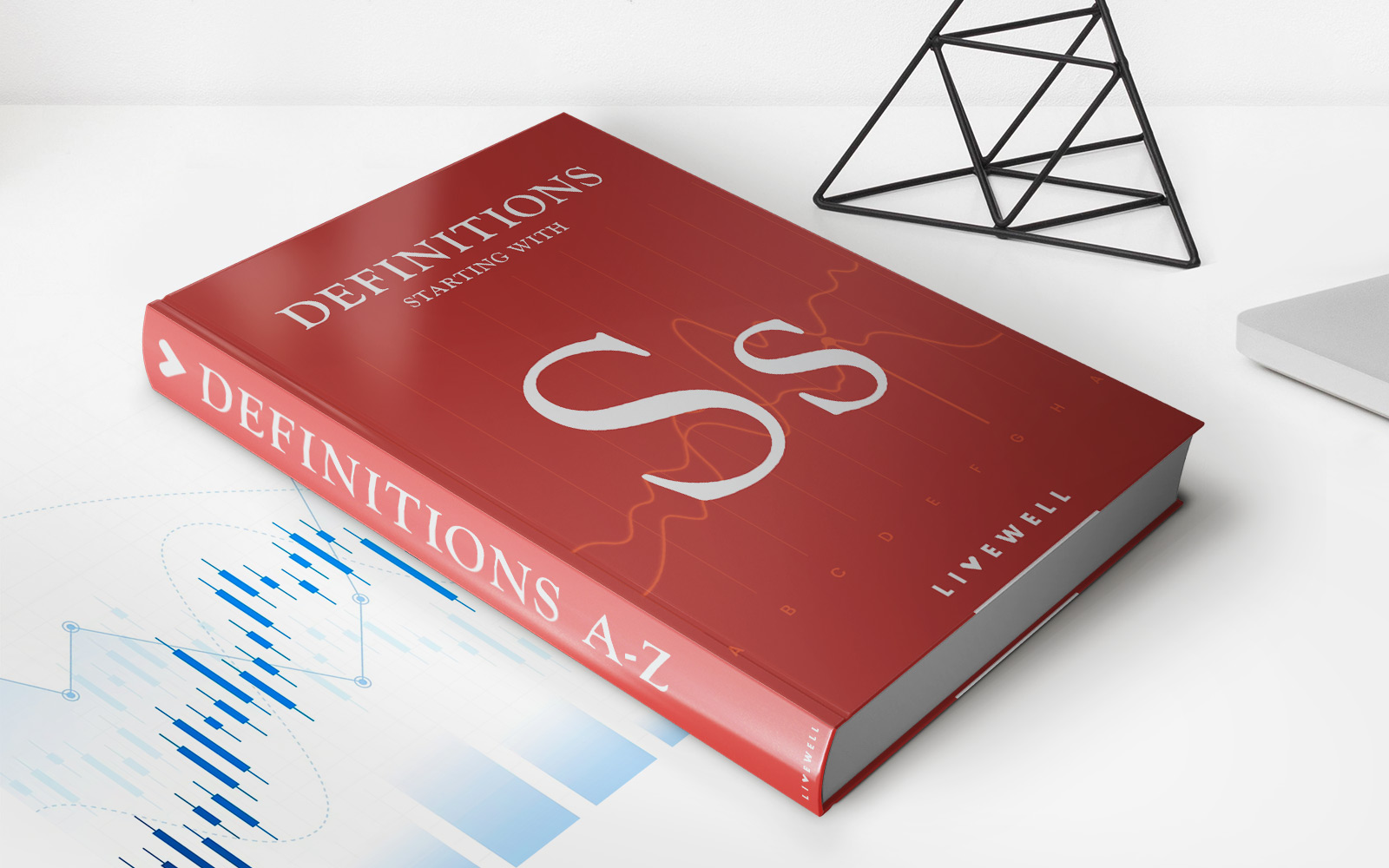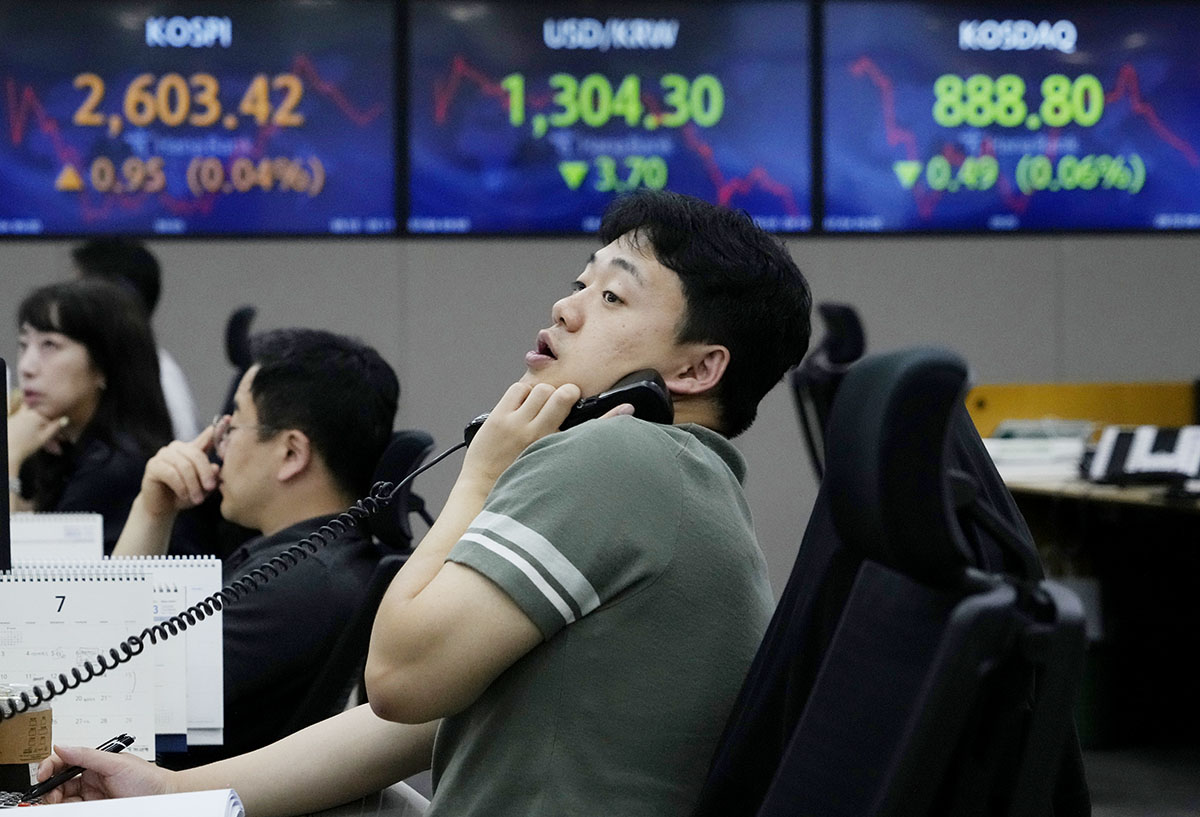

Finance
When Does The Hong Kong Stock Market Open
Modified: February 21, 2024
Discover the opening hours of the Hong Kong Stock Market and stay updated on the latest finance news. Plan your trading strategy efficiently.
(Many of the links in this article redirect to a specific reviewed product. Your purchase of these products through affiliate links helps to generate commission for LiveWell, at no extra cost. Learn more)
Table of Contents
Introduction
Welcome to the world of finance and investments! If you’re interested in trading on the Hong Kong Stock Market, it’s crucial to understand its trading hours. The Hong Kong Stock Market, also known as the Hong Kong Exchanges and Clearing Limited (HKEX), is one of the most dynamic and significant stock markets in the world. Being aware of the market’s opening and closing times is essential for investors and traders to make informed decisions.
The Hong Kong Stock Market operates on weekdays, Monday through Friday, except for public holidays. It provides a platform for individuals and institutions to buy and sell shares, derivatives, and other financial instruments. Whether you are an active trader or a long-term investor, knowing the trading hours can help you plan your investments and take advantage of market opportunities.
Throughout this article, we will explore the different trading sessions, extended trading hours, and market holidays of the Hong Kong Stock Market. By the end, you will have a comprehensive understanding of when the market opens and closes.
Trading Hours of the Hong Kong Stock Market
The Hong Kong Stock Market operates on a structured schedule, divided into several trading sessions to accommodate different market participants and global time zones. Understanding these trading hours is crucial for investors and traders to align their strategies and execute trades effectively. Let’s dive into the details of the trading sessions:
- Morning Session: The Hong Kong Stock Market opens for trading at 9:30 AM local time and continues until 12:00 PM. This session is known for its active trading atmosphere, as market participants react to news, economic data, and corporate announcements.
- Lunch Break: Following the morning session, there is a lunch break from 12:00 PM to 1:00 PM. During this hour, the market is closed, allowing traders and investors to take a break, review their positions, and make adjustments to their trading strategies.
- Afternoon Session: The Hong Kong Stock Market resumes trading at 1:00 PM after the lunch break and remains open until 4:00 PM. This session is crucial as it continues the trading momentum and allows opportunities for investors and traders to enter or exit positions based on market developments.
It’s important to note that the trading hours mentioned are based on Hong Kong local time (GMT+8). However, it’s vital to consider the time zone differences when trading from different regions. For example, if you are trading from a different time zone, you need to calculate the corresponding time difference to adjust to the Hong Kong market’s opening and closing times.
Additionally, it’s worth mentioning that the trading hours may be subject to change based on market conditions, holidays, or special circumstances. It is advisable to stay updated with any announcements or notifications from the Hong Kong Stock Exchange or your brokerage firm.
Now that you understand the regular trading hours of the Hong Kong Stock Market, let’s explore the extended trading hours and how they can provide additional opportunities for market participants.
Morning Session
The morning session of the Hong Kong Stock Market is a significant trading period that sets the tone for the rest of the day. It starts promptly at 9:30 AM local time and lasts for two and a half hours, until 12:00 PM. During this period, market participants actively engage in buying and selling shares, bonds, and other financial instruments.
As the market opens, there is often a surge in trading activity as investors react to overnight news, economic data releases, and corporate announcements. This initial volatility can present opportunities for traders looking to capitalize on short-term price movements.
During the morning session, market indices, such as the Hang Seng Index (HSI), are closely monitored to gauge the overall market sentiment and performance. Traders and investors analyze stock charts, company fundamentals, and other technical indicators to identify potential trading opportunities.
Liquidity in the morning session is relatively high, allowing for smoother execution of trades. This means that buyers and sellers can easily find counterparties to enter or exit positions, minimizing the impact on market prices. However, it is worth noting that increased trading volume and volatility can also heighten the risks associated with trading during this session.
For long-term investors, the morning session provides an opportunity to analyze market developments, review portfolios, and make strategic investment decisions. It is a crucial time to evaluate the performance of existing holdings and assess potential investment opportunities.
During the morning session, it is beneficial to stay updated with the latest news and market analysis, as this can impact the performance of individual stocks and the overall market. Traders and investors often keep an eye on major news releases, economic events, and geopolitical developments that could influence market sentiment.
Overall, the morning session of the Hong Kong Stock Market is an important period for traders and investors to actively participate in the market, react to market-moving events, and capitalize on potential trading opportunities. It sets the stage for the subsequent trading sessions and can significantly impact the overall market sentiment.
Lunch Break
The lunch break in the Hong Kong Stock Market is a designated period of one hour, from 12:00 PM to 1:00 PM, during which the market is closed. This break serves as a midpoint between the morning and afternoon trading sessions, allowing market participants to take a pause and regroup before the next phase of trading resumes.
The lunch break provides traders and investors with an opportunity to step away from their screens and reflect on the morning session’s market movements. It is a time for them to analyze their positions, review their trading strategies, and make any necessary adjustments or reallocations based on new information or market developments.
Furthermore, the closure of the market during the lunch break allows for system maintenance, updates, and other administrative tasks to be performed by the Hong Kong Stock Exchange. It ensures the smooth functioning of the market and the accurate processing of trades.
During the lunch break, it is common for market participants to catch up on financial news, read research reports, and gather insights about the overall market. This period offers an opportunity to stay informed about any significant announcements, economic data releases, or geopolitical events happening globally that can impact the markets.
The break also provides an opportunity for traders and investors to network and engage in discussions with colleagues and industry professionals. During this time, they can exchange ideas, share insights, and gain different perspectives on market trends and investment opportunities.
It’s important to note that despite the market being closed during the lunch break, other financial markets around the world may still be open and active. Therefore, global developments during this hour can influence investor sentiment and subsequent market movements when trading resumes in the afternoon session.
In summary, the lunch break in the Hong Kong Stock Market serves as a strategic intermission, allowing market participants to recharge, analyze market conditions, and align their trading strategies. It provides valuable time for reflection and preparation for the afternoon session, which plays a significant role in shaping the market’s overall performance for the day.
Afternoon Session
The afternoon session of the Hong Kong Stock Market is the second trading period of the day, following the lunch break. It starts promptly at 1:00 PM and continues until 4:00 PM local time. This session is crucial as it allows market participants to react to any new developments that may have occurred during the lunch break and make further trading decisions.
During the afternoon session, the market tends to exhibit a different rhythm compared to the morning session. It is characterized by a mix of continuation and consolidation of morning trends, as well as new market developments that may influence stock prices and overall market sentiment.
Traders and investors closely monitor the market during the afternoon session to assess the strength of trends, spot potential reversals, and identify emerging opportunities. Technical analysis, chart patterns, and other indicators are frequently used to gauge potential entry and exit points for trades.
Volatility during the afternoon session can vary depending on specific market events, news releases, and economic data. The level of trading activity typically remains robust, presenting opportunities for traders to execute buy and sell orders at favorable prices.
For long-term investors, the afternoon session offers a period to evaluate the overall market sentiment, monitor the performance of their existing holdings, and make decisions regarding portfolio rebalancing or adjustments. It allows them to assess the impact of any new information that may have become available throughout the day.
As the afternoon session progresses, traders and investors start finalizing their positions and preparing for the market’s close. This includes managing any open orders, assessing the potential impact of the closing auction, and making decisions about overnight positions.
It is worth mentioning that the final minutes of the afternoon session can sometimes exhibit increased volatility as traders position themselves ahead of the market’s closure. This can lead to heightened trading volumes and price fluctuations as market participants adjust their positions.
Overall, the afternoon session of the Hong Kong Stock Market plays a crucial role in shaping the day’s market performance. It provides opportunities for traders and investors to capitalize on emerging trends, react to new developments, and make informed decisions based on market conditions. By the end of the session, market participants start preparing for the market’s close and evaluating their trading activity for the day.
Extended Trading Hours
In addition to the regular trading hours, the Hong Kong Stock Market also offers extended trading hours known as the After-Hours Futures Trading (AHFT) session. This session allows market participants to continue trading after the official market close and offers opportunities for investors and traders who may not be able to actively participate during the normal trading hours.
The AHFT session extends the trading day by two hours, from 4:15 PM to 6:15 PM local time. During this period, investors can trade futures contracts that are based on the Hang Seng Index (HSI) and other specific indexes.
Extended trading hours can be beneficial for several reasons. Firstly, it provides flexibility for individuals who have daytime commitments and cannot actively participate during the regular trading hours. They have the opportunity to engage in trading activities after their workday is over.
Moreover, extended trading hours allow investors to react to news or events that occur outside of the regular trading session, such as earnings releases or economic data from other global markets. This additional trading window enables investors to take advantage of market movements that may have occurred after the market close.
It’s important to note that although the AHFT session offers extended trading hours, the liquidity and trading volume during this period are typically lower compared to the regular trading hours. This lower liquidity can result in wider bid-ask spreads and potentially higher price volatility.
It’s crucial for investors and traders to understand that not all securities are available for trading during the extended hours. During the AHFT session, only specific futures contracts are traded, while regular stocks and other securities are not accessible.
Furthermore, it’s important to consider the potential risks associated with extended trading hours. With lower liquidity and limited trading participants, there can be a higher risk of large price swings and less efficient execution of trades. The market can be more susceptible to sharp price movements, especially with lower trading volume.
Overall, extended trading hours through the AHFT session offer an additional window for investors and traders to manage their positions and react to global market developments. However, it is important to exercise caution and carefully consider the potential risks and limitations associated with trading during these extended hours.
Market Holidays
Like any other financial market, the Hong Kong Stock Market observes market holidays when it remains closed for trading. These holidays provide market participants and investors with an opportunity to take a break from trading activities and reflect on their investment strategies. It is essential to be aware of these market holidays to plan your trading activities and avoid any inconveniences.
The market holidays in Hong Kong can vary from year to year. They include both national holidays and additional public holidays specific to Hong Kong. Some of the major market holidays observed in Hong Kong are:
- New Year’s Day
- Lunar New Year
- Ching Ming Festival
- Easter Monday
- Labor Day
- Tuen Ng Festival (Dragon Boat Festival)
- Hong Kong Special Administrative Region Establishment Day
- Mid-Autumn Festival
- Chinese National Day
- Christmas Day
- Boxing Day
During these market holidays, the Hong Kong Stock Market remains closed, and no trading activities take place. It is important to note that the exchange may also observe half-day trading sessions on certain holidays, where the market closes earlier than the regular trading hours.
Market holidays can impact investment decisions and trading strategies, as they can lead to gaps in market activity and potentially affect market sentiment upon reopening. It is advisable to consider the timing of market holidays when planning your trades and managing your portfolio.
To stay informed about upcoming market holidays, it is recommended to check the official website of the Hong Kong Stock Exchange or consult with your brokerage firm. They provide timely information regarding market closures, trading schedules, and any special arrangements during festive seasons.
By being aware of the market holidays, you can effectively manage your trading activities, avoid any potential inconveniences, and align your investment strategies with the market’s operating hours.
Conclusion
Understanding the trading hours of the Hong Kong Stock Market is vital for investors and traders looking to navigate the dynamic world of finance. The market operates on a structured schedule, with morning and afternoon sessions, separated by a lunch break. These sessions provide ample opportunities for market participants to buy, sell, and analyze various securities.
The morning session sets the tone for the day, with active trading and reactions to overnight news and corporate announcements. The lunch break offers a valuable intermission for reflection and preparation for the afternoon session.
The afternoon session continues the trading momentum and allows market participants to make further trading decisions based on new developments. It is a time for investors to assess the overall market sentiment and manage their positions before the market’s close.
In addition to the regular trading hours, the Hong Kong Stock Market provides extended trading hours through the After-Hours Futures Trading (AHFT) session. This session allows individuals to trade futures contracts beyond the regular market hours, offering flexibility for those who cannot participate during the day.
Market holidays are also important to consider, as they affect the market’s operating hours and can impact trading strategies and market sentiment upon reopening. It is crucial to stay updated about market holidays to plan and manage trading activities effectively.
By being aware of the trading hours, extended trading sessions, and market holidays, investors and traders can create well-informed strategies, take advantage of market opportunities, and align their activities with the market’s schedule.
Remember to stay updated with any announcements or notifications from the Hong Kong Stock Exchange to ensure accurate information regarding trading hours and any changes in the schedule.
With a solid understanding of the Hong Kong Stock Market’s trading hours, you are better equipped to navigate the world of finance and make informed investment decisions.
